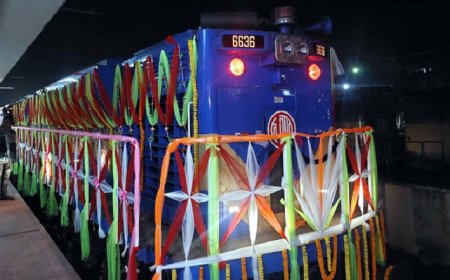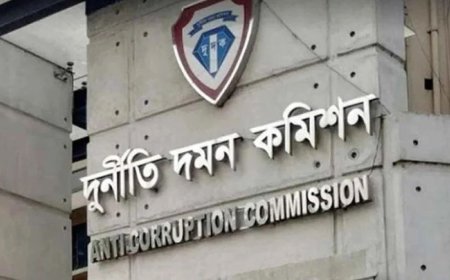Constitution Reform Commission Recommendations: Perspectives from BNP, Jamaat, and Others
Constitution Reform Commission Recommendations: Perspectives from BNP, Jamaat, and Others

Constitution Reform Commission Recommendations: Views of BNP, Jamaat, and Other Parties
The recommendations from the government-formed Constitution Reform Commission largely reflect the demands of BNP and other major political parties regarding constitutional changes. However, certain proposals, such as adjustments to the constitution's fundamental principles and the structure of parliament, differ from their original expectations.
The commission has attempted to incorporate key proposals from political parties while introducing measures to ensure a balance of power. While many parties appreciate the focus on power balance, some question the recommendations altering the basic state principles.
Reactions from Political Parties
Until Thursday, BNP, Jamaat-e-Islami, and other key parties had not formally responded to the commission’s proposals. BNP leader Salahuddin Ahmed acknowledged that some of their recommendations, such as a bicameral parliament and power balance, were included. However, BNP plans to review the full recommendations before providing detailed feedback.
Jamaat-e-Islami’s Secretary General, Miah Golam Parwar, refrained from immediate comments, emphasizing that the proposals are not final. He noted that their formal stance would come during government-organized dialogues with political parties and stakeholders.
Key Recommendations and Proposals
The commission, chaired by Professor Ali Riaz, submitted its reform recommendations to Chief Advisor Professor Muhammad Yunus on Wednesday. A summary is available on the commission's website. Among the significant proposals are:
- Election-Time Caretaker Government: Reflecting BNP’s demand, the commission recommended an interim government similar to a caretaker system for free and fair elections.
- Bicameral Parliament: The commission proposed an upper house with 105 members, 100 elected proportionally based on votes in parliamentary elections, and five representing disadvantaged groups. BNP’s similar proposal included an upper house with distinguished professionals and experts.
- Proportional Representation: Jamaat proposed proportional representation for all 300 parliamentary seats, which the commission did not adopt. Instead, proportional representation is suggested for the 100-seat upper house.
- Youth Representation: The commission recommended lowering the qualifying age for parliament members from 25 to 21 and requiring political parties to nominate 10% youth candidates.
Article 70 and Parliamentary Independence
BNP proposed amending Article 70 to grant MPs independence in voting except on confidence votes, money bills, constitutional amendments, and state security issues. The commission suggested MPs be allowed to vote independently on all bills except money bills. It also proposed opposition members lead parliamentary standing committees.
Election Commission and State Institutions
BNP called for amendments to the Election Commissioners Appointment Act, while Jamaat recommended a search committee involving the prime minister, opposition leader, and chief justice. The commission proposed forming a National Constitutional Council comprising key state figures for appointments to significant institutions like the Election Commission and Public Service Commission.
Fundamental Principles and State Pillars
The commission recommended new fundamental principles: equality, human dignity, social justice, pluralism, and democracy. Some parties, such as the Communist Party of Bangladesh, objected to changes from the 1972 constitution's original pillars.
Implementation Concerns
Nagorik Andolan leader Mahmudur Rahman Manna and others expressed doubts about implementing ambitious proposals like a bicameral parliament within the current interim government’s timeframe. Islami Andolan and other parties have yet to fully review the proposals.
Next Steps
The interim government plans to hold dialogues with political parties in February to discuss the recommendations. Public administration and judicial reforms commissions are expected to submit their reports by January 31, with comprehensive discussions planned thereafter.
What's Your Reaction?





















































































